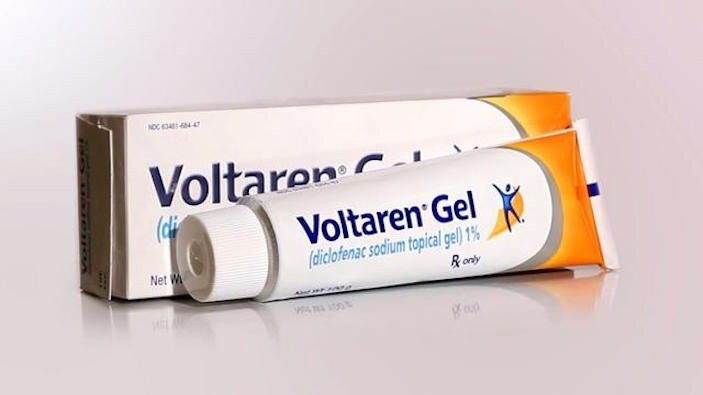Voltaren Arthritis Gel Approved for OTC Despite Safety Risks
/By Pat Anson, PNN Editor
The U.S. Food and Drug Administration has approved three drugs for over-the-counter (OTC) sale that were previously only available by prescription. One of them is Voltaren Arthritis Pain, a topical gel made by GlaxoSmithKline.
The active ingredient in Voltaren gel is diclofenac, a non-steroidal anti-inflammatory drug (NSAID) that’s been linked to cardiovascular disease and other serious health problems. The gel contains a 1% solution of diclofenac sodium.
Voltaren Arthritis Pain was first approved by the FDA in 2007 as a prescription drug for the temporary relief of osteoarthritis joint pain in the hands, knees and feet. When taken as directed, the agency considers the gel safe to use.
“As a result of the Rx-to-OTC switch process, many products sold over-the-counter today use ingredients or dosage strengths that were available only by prescription 30 years ago,” said Karen Mahoney, MD, acting deputy director of the Office of Nonprescription Drugs in the FDA’s Center for Drug Evaluation and Research.
“Approval of a wider range of nonprescription drugs has the potential to improve public health by increasing the types of drugs consumers can access and use that would otherwise only be available by prescription. This includes providing the millions of people that suffer with joint pain from arthritis daily over-the-counter access to another non-opioid treatment option.”
The FDA said Voltaren Arthritis Pain may take up to 7 days to work. Consumers should stop using it and seek medical attention if their arthritis pain is not improved in 7 days or if they need to use the product for more than 21 days.
The warning label cautions that diclofenac may cause a severe allergic reaction, especially in people allergic to aspirin. Liver damage may also occur if the gel is used more often or longer than directed, or when used with other products containing diclofenac. The label cautions that diclofenac and other NSAIDs increase the risk of heart attack, heart failure and stroke.
Diclofenac One of Riskiest NSAIDs
Diclofenac is not well-known in the United States, but it is the most widely used NSAID in the world. Some experts consider diclofenac so risky it should be banned as an OTC drug.
A large 2018 study in Denmark found that people using diclofenac were 50 percent more likely to have cardiovascular problems, such as atrial fibrillation, heart failure and stroke.
For every 1,000 people who used diclofenac, the study estimated that four would develop a major health problem within a year.
“It is time to acknowledge the potential health risk of diclofenac and to reduce its use. Diclofenac should not be available over the counter.”
"It is time to acknowledge the potential health risk of diclofenac and to reduce its use," wrote lead author Morten Schmidt, MD, Aarhus University Hospital. “Diclofenac should not be available over the counter, and when prescribed, should be accompanied by an appropriate front package warning about its potential risks.”
Diclofenac was rated as one of the seven riskiest NSAIDs in a 2016 study published by the British Medical Journal. Researchers estimated the risk of heart failure doubled for people taking diclofenac at very high doses.
“The selective COX 2 inhibitors and diclofenac have repeatedly been associated with higher cardiovascular risk, and therefore it seems prudent to avoid them and consider lower risk naproxen at the lowest effective dose,” researchers warned.
According to the FDA’s Adverse Events Reporting System, there have been over 19,000 serious medical cases involving diclofenac sodium since 2010, including 2,294 deaths.
As PNN has reported, the FDA has effectively slammed the door shut on new opioid pain medications because of the controversy over opioid addiction and overdose. The agency is promoting the use of “safer” non-opioid drugs and recently approved a cocaine-based analgesic nasal spray.





